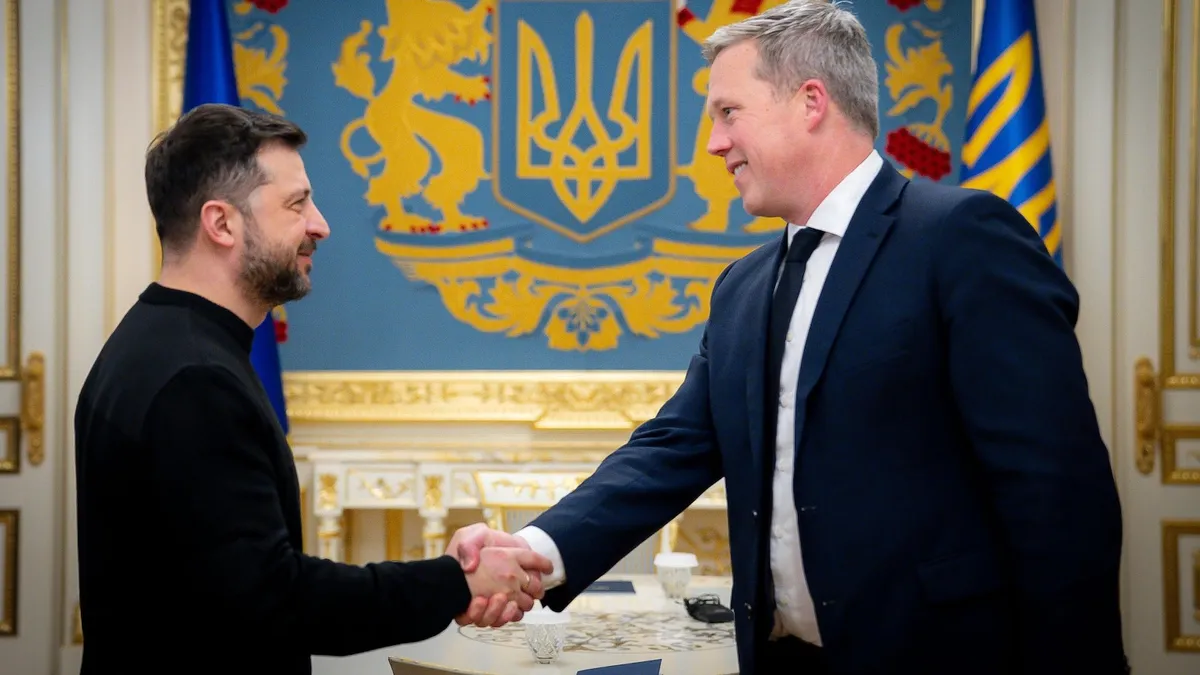
During the recent Halifax International Security Forum held in Nova Scotia, a group of American senators expressed strong disapproval of a peace proposal concerning Ukraine. This proposal, a 28-point plan developed during the Trump administration, was crafted without Ukrainian input and is seen as conceding to several demands from Russia that Ukrainian President Volodymyr Zelenskyy has repeatedly rejected, including the relinquishment of significant territories.
Independent Senator Angus King from Maine characterized the proposal as one of the most serious geopolitical blunders of his lifetime. Speaking during a panel discussion, he questioned whether leaders like Xi Jinping and Kim Jong Un were observing the U.S.'s approach to Russia, stating, “This is pure and simple. There’s no ethical, legal, moral, political justification for Russia claiming eastern Ukraine.” King drew a parallel between this proposal and the infamous Munich Pact of 1938, which is often viewed as a failed attempt at appeasement.
Republican Senator Thom Tillis of North Carolina echoed King’s sentiments, criticizing the Republican Senate leader Mitch McConnell for not being harsh enough in his condemnation of the proposal. McConnell had remarked that if the administration prioritized appeasing Putin over achieving genuine peace, then it was time for the President to seek new advisors. Tillis stressed that the U.S. should not make any moves that might be perceived as victories for Putin, whom he described as a “murderer, a rapist, and an assassin.”
Democratic Senator Jeanne Shaheen of New Hampshire, who serves as the ranking member of the Senate Foreign Relations Committee, labeled the proposal an “outrage.” She accused the plan of being a direct fabrication by Putin, stating, “Donald Trump claims to be such a deal maker, but has allowed Vladimir Putin to play him for the last 10 months. It's a travesty on the American people as well as the Ukrainian people.”
Following the proposal's unveiling, Russian President Vladimir Putin expressed support for the plan, suggesting it could serve as a foundation for a final peace settlement if the U.S. could persuade Ukraine and its European allies to comply. In contrast, Zelenskyy, while not outright rejecting the proposal, emphasized the need for fair treatment and committed to “work calmly” with Washington and other partners during what he described as “one of the most difficult moments in our history.”
The Halifax International Security Forum, now in its 17th year, typically attracts around 300 participants, including military officials, diplomats, and scholars. However, this year was marked by a notable absence of U.S. defense officials due to the Trump administration's suspension of their participation in events hosted by various think tanks. The attendance of numerous U.S. senators at the forum was partly motivated by the strained relations between Canada and the U.S., which have been exacerbated by Trump's trade war and controversial remarks suggesting Canada should become the 51st state.
Senator Shaheen pointed out that the current tensions have led to a decline in Canadian tourism to the U.S., particularly affecting states like New Hampshire. She voiced her commitment to opposing the President's tariffs and comments, arguing that they are not only harmful to Canada and the U.S. relationship but detrimental on a global scale as well, reflecting a lack of respect for sovereign nations.